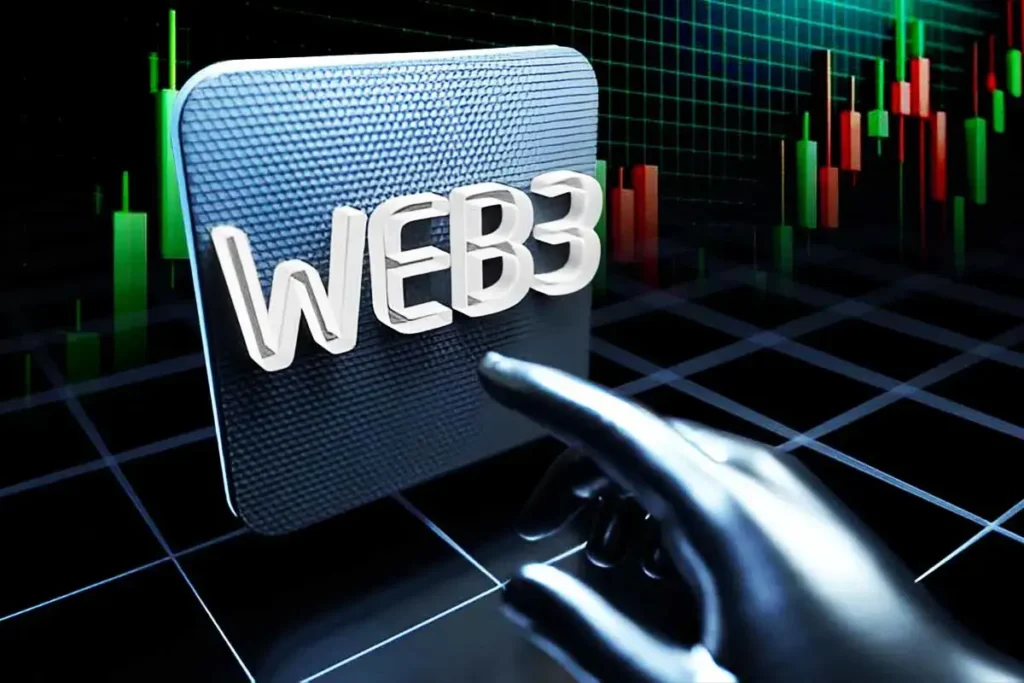The Transformation of Trading in the Digital Economy: AI and Web3
The digital economy is witnessing a profound transformation, with Artificial Intelligence (AI) taking center stage. As decentralized markets—commonly referred to as Web3—continue to evolve, AI is not merely acting as an optimization layer; it is rapidly becoming the core of trading practices. From enhancing alpha discovery and enabling automated arbitrage to executing trades through agent-based models and refining intent prediction, AI is now embedded in the very fabric of on-chain finance. However, this powerful technology brings along challenges surrounding transparency, fairness, and control in transactions.
Autonomous Trading in Web3: A New Paradigm
In a recent discussion with Steve Gregory, CEO of VTrader, we explore the distinct nature of autonomous trading in Web3 as compared to traditional algorithmic trading. Gregory emphasizes that one of the key differentiators is the absence of centralized execution systems. In conventional finance, algorithmic trading depends on centralized venues and FIX APIs for order processing. While trades can occur at lightning speed, the final settlements may take up to a full day, leaving room for potential reversals or impacts from intermediaries. On the other hand, Web3’s autonomous trading framework allows direct execution on-chain through decentralized protocols, achieving near-instant settlement upon the next block confirmation. With no clearing houses or trade support desks, the system offers a higher level of efficiency and finality, supported by immutable record-keeping.
Joining this discourse, Ming Wu, Founder and CEO of RabbitX, highlights that in Web3, autonomous trading goes beyond speed; it embodies sovereignty. The permissionless infrastructure of decentralized exchanges allows autonomous agents to trade round the clock without waiting for centralized parties. This empowerment of agents symbolizes a critical evolution in trading and makes participation more accessible. Wu envisions the future of decentralized finance (DeFi) trading being shaped by natural language interfaces, which would enable users to execute intricate strategies merely by articulating their intentions, effectively removing the barriers posed by coding and technical know-how.
The Rise of Predictive AI in Trading
The development of Predictive AI represents another leap forward in trading efficiency and effectiveness. Shashank Sripada, Co-founder and COO at Gaia, points out how AI is evolving beyond traditional robo-advisors to address real-time needs within DeFi. Companies like Gaia utilize decentralized AI agents for automating crucial tasks, including portfolio rebalancing, yield optimization, and governance participation, thereby minimizing the necessity for continuous human oversight. Gaia’s platform allows developers to create decentralized AI agents that utilize smart contracts on protocols such as Uniswap and Aave to remain updated with real-time market data.
Even as VTrader operates within a centralized framework, it is leveraging AI technologies to democratize access to predictive analytics. Their AI price prediction tool exemplifies this innovation. Working with third-party expertise, this tool analyzes crypto news and price chart data to forecast short-term market movements. Gregory asserts that it aims to help users navigate volatile market conditions with greater assurance, thus enhancing their trading experience significantly.
Intent-Based Trading: Efficiency and Transparency
Intent-based trading is becoming a buzzword in DeFi, aligned with next-generation protocols like Velora and CowSwap. Mounir Benchemled, founder of Velora, notes that while AI can optimize trading decisions devoid of emotional biases, its efficiency relies heavily on transparency and verifiability. Benchemled emphasizes that users must be able to understand how AI systems operate to build trust, rather than relying on blind faith. The risks surrounding trust and transparency become even more pronounced when considering the differences between open-source AI running on Web3 compared to those on Web2 infrastructure.
At Velora, the goal is to develop AI agents that function on-chain, where their code is fully open-source. This approach allows for community audits, ensuring accountability and maintaining user trust, especially in unpredictable market conditions. Intent-based trading should empower users, fostering an environment where they can engage confidently in transactions.
The Future of AI-Driven Trading Agents
Looking ahead, Sripada forecasts that the future of DeFi will prominently feature AI agents capable of handling tasks such as trade execution, optimization, and even governance. This shift will allow users to concentrate on their personal financial goals and risk preferences, rather than getting bogged down by the minutiae of trading. He cautions, however, that the challenge lies in ensuring these systems remain open and trustworthy, promoting universal standards for expressing intent and trustworthy decentralized data.
Gregory shares an optimistic vision for autonomous trading, envisioning an economy consisting of agent-to-agent interactions. He sees a future where smart contracts and AI agents can perform transactions based on programmed logic and real-time data, fulfilling the original vision of cryptocurrency as programmable money that operates autonomously and efficiently.
Conclusion: Navigating the Future of Decentralized Trading
In summary, the integration of AI into Web3 trading is reshaping the landscape of the digital economy. As decentralized markets flourish, autonomous trading systems are becoming more efficient and final, shedding light on traditional finance’s limitations. The use of predictive AI tools is democratizing access to trading insights, increasing user confidence amid market volatility. Furthermore, the emergence of intent-based trading promotes efficiency while raising crucial questions about transparency.
The future is bright for AI-driven trading agents, which promise to take care of complex processes, enabling users to focus on broader financial objectives. However, as this evolution progresses, stakeholders must remain vigilant regarding accountability and verifiability in AI systems. By embracing a transparent approach, the decentralized financial ecosystem can enhance user trust and solidify the foundations of a more equitable trading environment.


